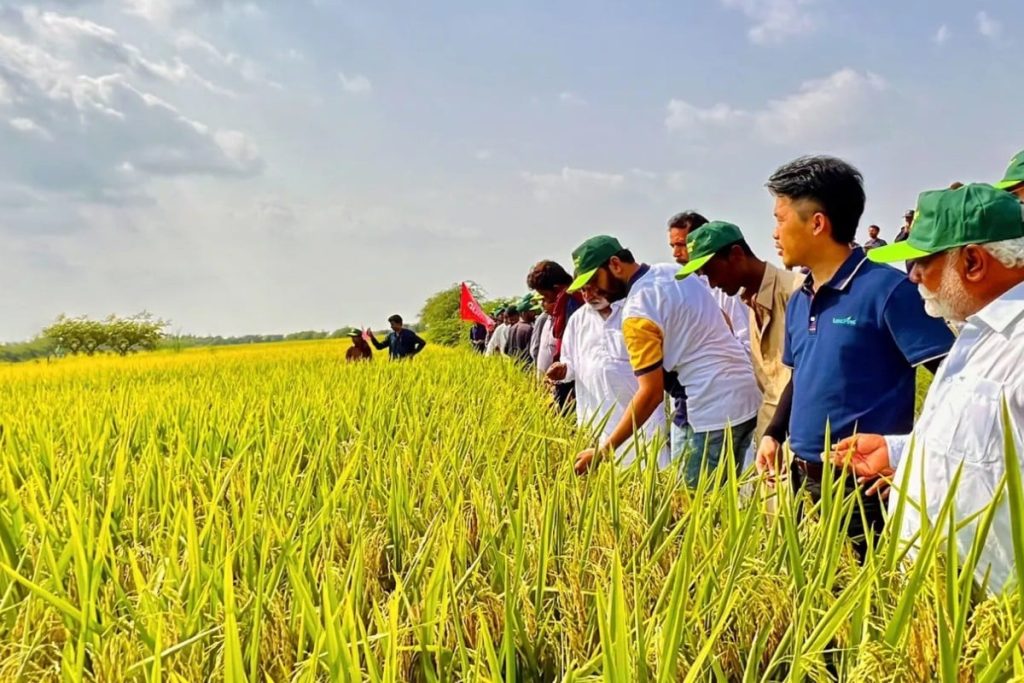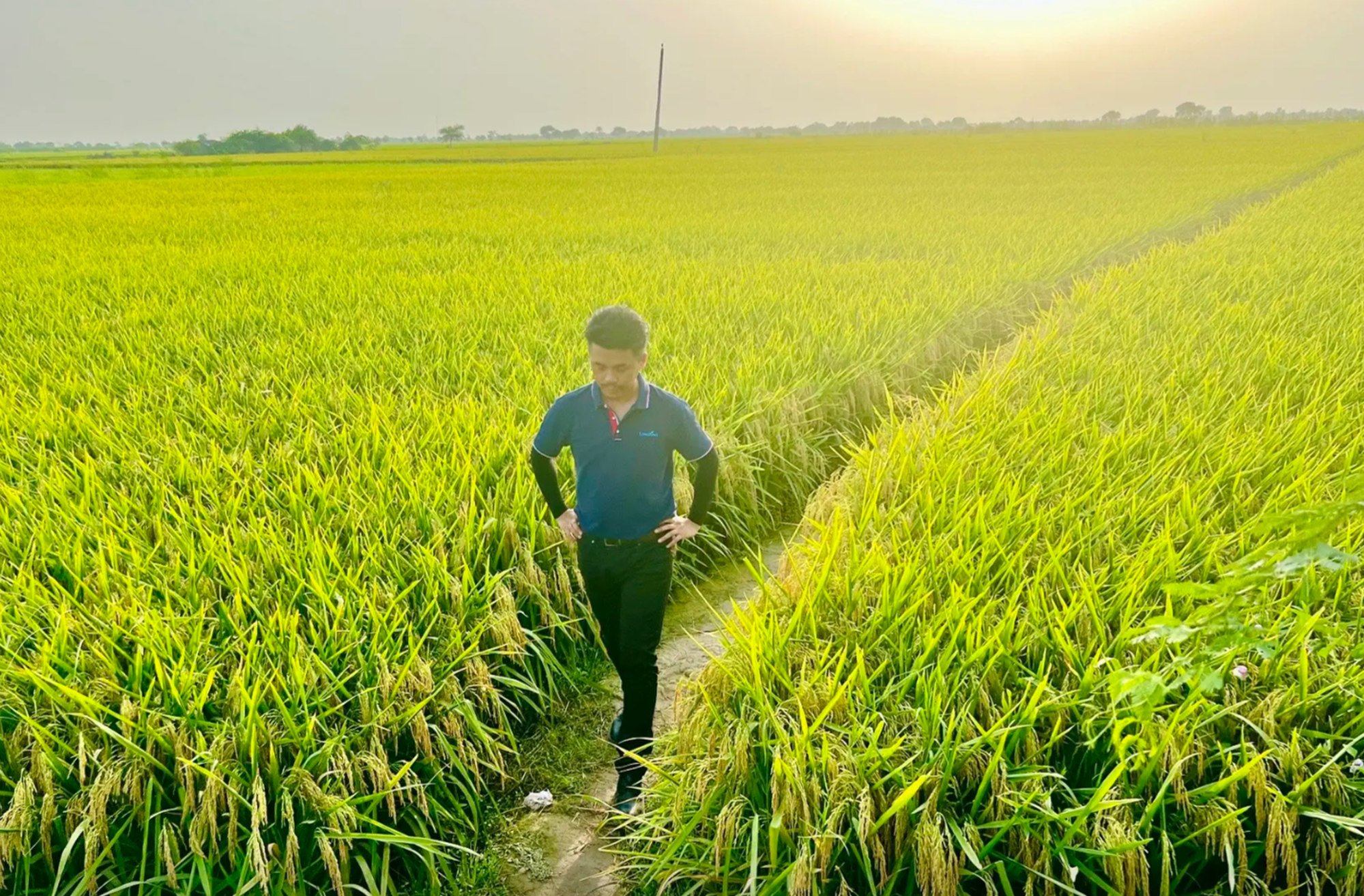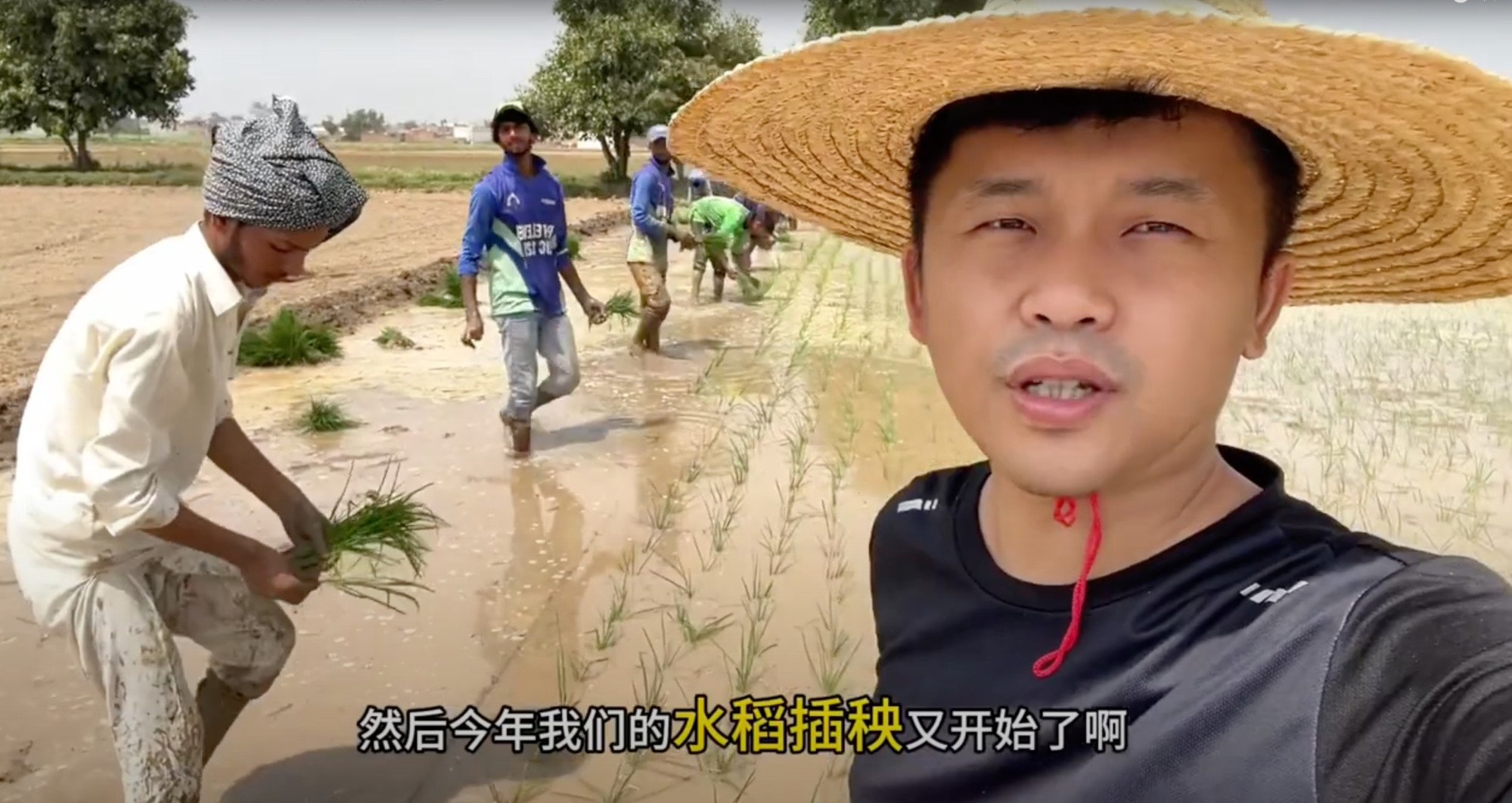Tags
China scientist defies terror threats to help Pakistan farmers boost rice yields
Dai tells the Post about the personal interactions that make the challenges of his work in Pakistan’s rural areas worthwhile

Dai, a Chinese agricultural expert, has been travelling through Pakistan’s countryside for years promoting the benefits of hybrid rice and his pictures of rural life have won him more than 700,000 fans on social media. Photo: Douyin/Dai
As Chinese agricultural expert Dai travels through Pakistan promoting the benefits of high-yield hybrid rice varieties, he often finds himself these days under the vigilant protection of security guards carrying AK-47s.
Dai, who asked to be identified only by his surname, has attracted more than 700,000 fans to his account on Douyin – the Chinese version of TikTok – with his posts of life in rural Pakistan over the years. Occasionally, they include local police standing armed and watchful in the rice fields while he works.
Pakistan is China’s only “all-weather strategic cooperative partner” and plays a pivotal role in Beijing’s massive Belt and Road Initiative, but Chinese scientists and other workers have been increasingly under attack from militant groups.
In March this year, five Chinese engineers and a local driver died when a terrorist drove a truck loaded with explosives into a convoy of workers at the Dasu hydropower station in the country’s north.
Dai, who has been based in Pakistan since graduating from Hunan Agricultural University in 2017, said the situation had noticeably worsened since 2021, when the ceasefire agreement ended between the Pakistani Taliban and the government.
As the world’s fifth most populous nation with a vast traditional agricultural base, Pakistan is a focal point for China’s push to improve bilateral agricultural cooperation, particularly through the promotion of hybrid rice.
A major part of Dai’s mission is to manage demonstration fields in rural parts of Pakistan, where simply providing high-yield seeds to farmers would be insufficient.
“These fields showcase, under meticulous care, that hybrid rice could have double or triple yields [compared with] local rice varieties … [to] attract local farmers to join hybrid rice cultivation,” he said.
During his time in Pakistan, Dai has experienced some heartfelt interactions with the local farmers, including an invitation to a meal that deeply moved him.
After seeing the high yield from one of Dai’s demonstration fields, a farmer planted hybrid rice himself. The following year, pleased with his bountiful harvest, he invited Dai to his home to enjoy a feast of duck.

While locals usually eat with their hands, the farmer went to town and bought chopsticks for his Chinese guest – a gesture that deeply moved Dai, because of its thoughtfulness.
“Despite not knowing him well and the language barrier, I could feel his appreciation for the Chinese agricultural expertise,” Dai said.
Pakistan’s arid climate poses challenges for traditional rice farming, which can be addressed with the introduction of drought-resistant varieties. However, a large part of Dai’s work is about addressing differences in farming philosophies.
“Local farmers [sometimes] grow crops casually and pay little attention to field management,” Dai said.
To bridge the knowledge gap, Dai and his team provide hands-on training in pollination, nutrient management, weed control, and other techniques that can increase yields from a few hundred kilograms per mu (1/15th of a hectare) to about 800kg (1,700lb).
But the growing security concerns are making it harder and costlier for Dai and his fellow Chinese nationals to fulfil their mission of sharing knowledge and expertise with Pakistan’s farmers.
Dai recounted some of the many security policies introduced by the Pakistani government in response to the escalating attacks on Chinese workers in the country.
“Government requires Chinese people to use bulletproof cars when going out. We also need to report our whereabouts to the police and can only travel with police approval and protection,” he said.
“Additionally, the places where Chinese people live must be secured with barbed wire and surveillance cameras.”
Renting a bulletproof car costs 20,000-30,000 yuan (US$2,750-US$4,125) per month, and buying one costs several hundred thousand yuan.
“Many Chinese have found these costs too high and have returned to China. Sometimes, travel permissions are not granted on time, and local Pakistani colleagues have to take over my work in the field,” Dai said.
Despite these challenges, Dai has continued to traverse most of Pakistan’s rice-growing regions – the same ones that he has been visiting for the past seven years, avoiding only the western desert and areas controlled by the Taliban.
His efforts have contributed to a soaring acceptance of hybrid rice, driven by widespread smartphone and social media use in Pakistan’s rural areas.
“Pakistan’s rice exports have seen a corresponding surge, growing by nearly 5.6 million tonnes in the past 11 months to make the country the world’s fourth-largest rice exporter,” said Mohammad Rizwan Younis, who together with Dai runs Pakistan’s largest company selling and promoting hybrid rice.

China also exports agricultural machinery for planting and harvesting to Pakistan, with government subsidies for farmers who buy or rent these machines.
“Pakistani farmers used Japanese Kubota harvesters and transplanters, but in recent years leading Chinese agricultural companies – like World Agriculture Machinery from Jiangsu province and Lovol from Shandong province – have begun promoting their products in Pakistan,” Dai said.
Despite the challenges, Dai is positive about his position although he has been less active online lately, largely because of restrictions on going out that have been imposed on Chinese nationals in the country.
Nevertheless, he plans to stay in Pakistan and continue sharing his perspective on local culture and customers in future social media posts.
“Promoting agricultural technology in Pakistan is a continuous effort from one generation to the next. However, many areas in the country still have farmers unfamiliar with hybrid rice, necessitating ongoing outreach,” he said.
https://www.scmp.com/news/china/science/article/3269251/china-scientist-defies-terror-threats-help-pakistan-farmers-boost-rice-yieldsPublished Date: July 6, 2024






